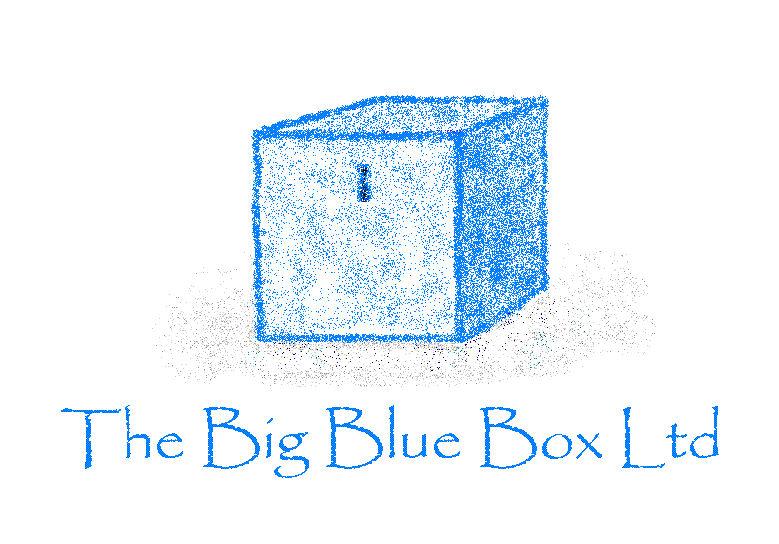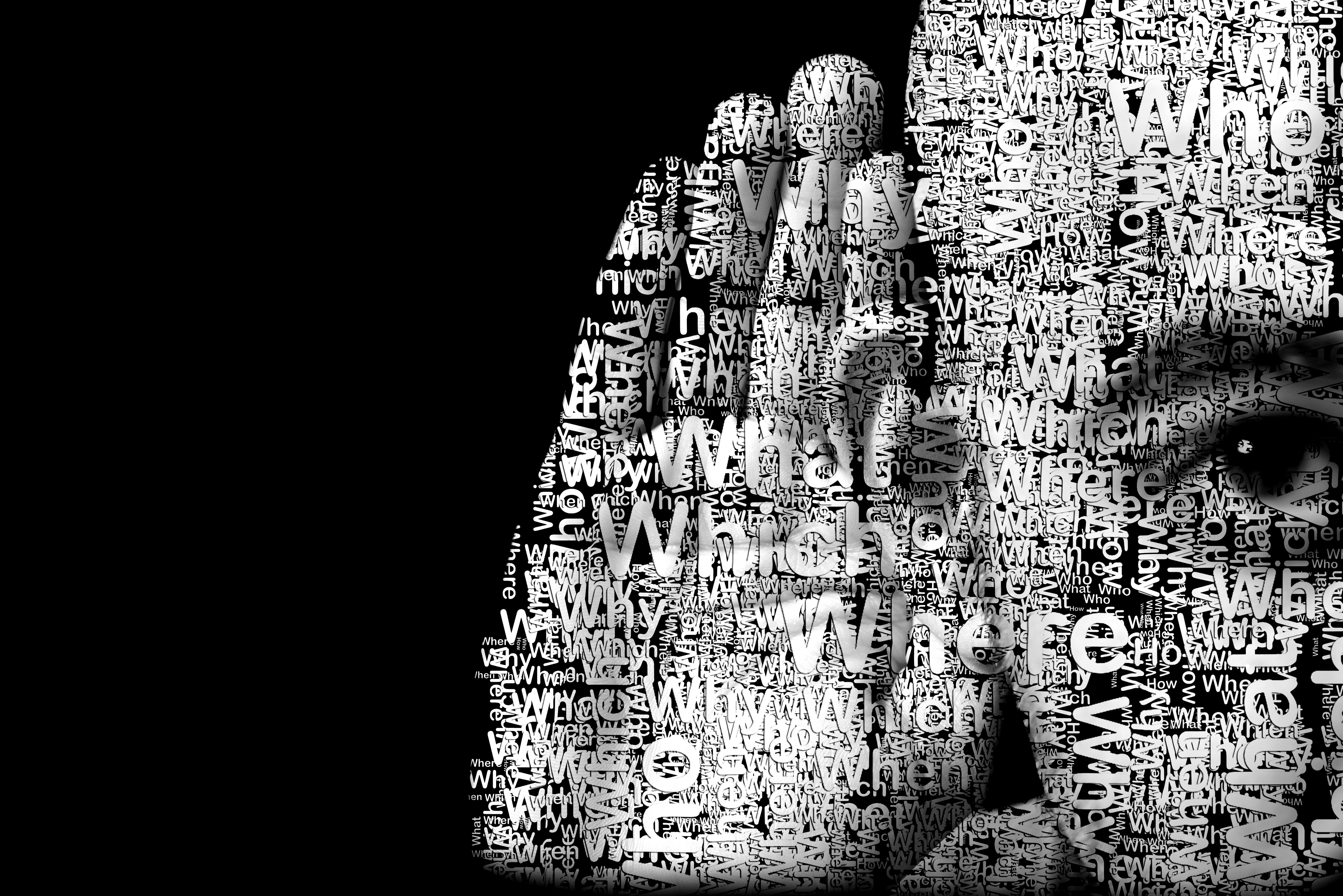About The Big Blue Box
What we do
Our Services
We support people is several ways.
We can support you with 'one to one' Coaching and Mentoring.
Our clients are typically senior leaders and the emerging talent in corporate life.
People learn in different ways. You may prefer to learn from others in similar positions, sharing experience in a confidential setting.
For you we curate and chair Peer Advisory Groups.
If you are a coach or mentor then you might also be considering Coaching & Mentoring Supervision to support your professional practice.
If you are seeking counselling support for some everyday challenges that get in the way, perhaps relationships, stress or with some behaviour patterns, then we can help you too.
What is coaching?
Our coaching is a confidential conversation between a coachee and the coach. The coachee sets the initial agenda, is given time to talk and is listened to, without judgement. The coach brings a real curiosity, listening and reflecting back the answers to questions, and sometimes challenging, seeking to really understand.
This process of being ‘thoroughly listened to’ can create insights which help to raise self-awareness. Building self-awareness may help redefine the agenda, to remove the barriers and be the catalyst to change. This helps the coachee to unlock their potential.
Who we work with
Initially, most of our coachees are sponsored through their employing organisation’s HR or People strategy. They are open, seeking to learn, to grow, change and further improve performance.
Coachees are typically mid-life, mid-career, with complicated lives and demanding roles. Their roles are C-suite; CEOs, MDs, Directors and S/VP, or ‘High Potential’ emerging talent, perhaps approaching or undertaking their first board-level promotion.
As senior leaders, clients are seeking outcomes with impact for their own performance and that of their peers, teams and organisations.
How is a coaching project structured?
The coach may receive a briefing from the sponsoring organisation, but the coach will also undertake their own ‘diagnostic’ and negotiate the agenda with the coachee, who is the ‘real’ client. Confidentiality is defined.
An essential step is to ensure that the coach and coachee can work together. Any coaching engagement is subject to a simple ‘Chemistry Test’ in the first meeting, if for any reason either party feels uncertain then they can withdraw with no commitment.
Coaching conversations are usually ‘one-to-one’ at a mutually agreed location. Whilst being in-person is perhaps preferred, the agreed use of video does not negatively impact the process if appropriate skills and techniques are used.
We focus upon the delivery of results for the coachee. Timely outcomes are essential. To ensure pace of delivery, focus and engagement, we offer 4 coaching sessions in the first series. Each coaching session is of indeterminate duration, the session is as long (or short) as it needs to be to achieve a conclusion in that meeting.
What is mentoring?
Mentoring is a process of sharing and transferring knowledge and experience. A mentor will usually have knowledge and experience in a specific area of expertise, and the mentee will seek the guidance of the mentor in those areas.
A mentor might be a more experienced colleague elsewhere in an organisation, who is able to support a mentee as they undertake similar experiences that the mentor has undertaken. A mentor, having specific experience to share with the mentee, will often give the mentee the answer to a question.
However a coach does not necessarily have to have the specific experience required to answer a specific question. Coaching will help the coachee to find their own answer.
Mentoring and coaching can be very similar and their use will often overlap in the course of a project – a coach might mentor a client and a mentor might also coach a client, whilst working within appropriate boundaries.
Who are your clients?
Our mentoring work focuses upon specific areas of our experience that we seek to share with clients. The subject areas for mentoring would cover the sharing of interpersonal skills, leadership, personal effectiveness, emotional intelligence, coaching skills etc.
Our mentoring clients are usually CEOs, MDs, business owners. We have worked with numerous mentees in the Help to Grow program.
How is a mentoring project structured?
A mentoring project under the Government sponsored Enterprise Nation Help to Grow scheme is delivered according to that programme’s nationwide structure, offering a defined number of hours.
Outside the Help to Grow structure, we deliver mentoring-style support as an integral part of the tool kit deployed in every coaching project.
What is a peer advisory group?
Our peer advisory groups bring together like-minded individuals, who are selected and invited to join together with others within our client network, to collaborate in a shared common purpose.
The members of the group are independent of each other, and the diversity creates a significant resource within a culture of trust, confidentiality and collaboration.
Each group is a forum for the members’ personal and business growth, inspiring learning, innovation and development across the membership.
Who are the members of a peer advisory group?
Our Big Blue Box CEO Peer advisory groups bring together CEOs, MDs, business owners and senior leaders. Members may already have been coaching clients. The group membership offers them access to a collaborative team of others extending their network and giving them access to an independent board team. This enhances their ongoing personal and professional development.
A specialist professional group invites other coaches and mentors to meet regularly to collaborate on their collective and individual professional and business development. This group structure also provides coaching and mentoring supervision to its members.
Another peer advisory group structure brings together the high potential talent from diverse client organisations onto a powerful and energetic support and career development forum.
How does a peer advisory group work?
The power of the peer group is that individuals bring their diverse thinking and experience to the group, in a collaborative spirit of learning and trust. This helps to create a network and perspective outside their existing industry.
Some groups meet in person on a regular monthly basis, other groups prefer to meet virtually and some meet virtually quarterly.
The CEO peer advisory groups perform like the ideal board-level team of non-executive directors. The group helps members to make better decisions and hold each other to account for decisions and actions agreed upon in their meetings. The team noticed the lack of politics and trust that impairs many leadership teams.
The Coaching peer advisory group collaborates to share skills, resolve issues and advise each other on coaching dilemmas, tools and techniques.
Group members also have regular ‘one to ones’ with the group Chair to assist with the implementation of actions, individual learning and the preparation of items for the group’s collaboration and problem resolution.
What is supervision?
Supervision is part of the continuing professional development activity recommended for a coach or mentor. The supervision process encourages the coach or mentor to reflect upon and to discuss their practice with an independent ‘follow traveller’ in the coaching and mentoring profession.
Supervision would typically have three functions: the quality and ethics of the work undertaken by the coach, the professional development of the coach, and providing emotional support to the coach.
It is the opportunity for a practitioner to access support and development, build their capability, to ensure that their clients (their coachees) are receiving their coaching in line with good practice and ethics. It is the opportunity for an independent party to support the coach emotionally.
Who are your supervision clients?
Our supervision clients are typically coaches with recent qualifications, but with limited experience. The challenges they face are varied, from building and marketing their business, to defining their niche and area of expertise and addressing dilemmas in their client work.
There may be limitations on their potential from diverse sources. These can even include the philosophy and quality of coaching training they have received. Unlocking their potential may require work on confidence, reflection on their experience, developing emotional resilience, self management, or the specific challenges of their working environment, perhaps when practicing as an internal coach. Access to independent support can be invaluable in assisting the coach or mentor to extend their capability and the quality of their work, for the benefit of their coaching clients.
How is supervision provided?
- Our supervision is provided in two ways. We support coaches individually on a regular basis depending upon their development needs, their client experience and volume of client interactions.
- We also provide coaching and mentoring supervision in a peer advisory group setting, where coaches attend periodic virtual meetings for group support, discussions and review of work undertaken.
-
-
What is counselling?
-
When you share with a spouse, partner, friend, co-worker the things which are on your mind, they can go into a number of modes none of which are particularly helpful as now we have our original problem to deal with AND the overhead of dealing with their reaction to what we just said when we shared our original problem so we end up wishing we'd not said anything in the first place:
-
-
"Fixing" mode where they say things like "what you need to do is" or "you shouldn't put up with that" and we don't need that lecture. Often we know EXACTLY what we need to do to fix "it" whatever "it" is, we are just finding it hard to gear ourselves up to tackle it and could do with some moral support.
-
"Soothing" mode by saying things "don't worry, it'll be alright" when a) how can they even know that? and b) it is not alright NOW, thinking about it is keeping you up at night and what is needed is emotional support as you rally yourself and not meaningless, ill-informed platitudes.
- "Pull yourself together (because I have NO idea what to do with you in this state and you are supposed to be the strong one here") mode" and now we have this thing we're struggling with and the other person freaking out that we are losing it and we have to manage them, calm them down when we have barely enough mental resources to keep our own show on the road.
- Counselling is a confidential conversation between counsellor and client offering the opportunity for you to be heard and, in so doing, make sense of your life yourself and gain the clarity either to take action to change the situation or accept the situation and change your attitude to it and in so doing move on with it in your life.
-
-
-
-
Who we work with
-
Initially, most of our counselling clients are sponsored through their employing organisation’s HR or People strategy. They come into counselling because, despite their best efforts, they feel "off", just can't get back to their normal selves and want a confidential, non-judgemental breathing space in which to hit pause on the World and, with no one making demands on them, reflect, pinpoint what’s really troubling them, get to the root cause then choose what, if anything, they want to do about it.
-
How is counselling structured?
-
The first session is 50 minute "Chemistry Test" session so you can tell Claire a bit about you in general, along with an overview of what has you thinking about coming to counselling at this precise moment in your life in particular, so you can see how Claire is with that, if you feel you could trust and work with her. Equally, Claire wants to be sure she is a suitable counsellor for you, that there is nothing in the mix which she is not experienced or trained to work with you upon.
-
If both of you feel at ease, and nothing prevents Claire from working with you, then counselling sessions are 50 minutes long at Claire's private practice (or online using Zoom or Teams), once a week on the same day and the same time or booked 3 weeks ahead if your working pattern, or other Life commitments, do not support "same time, same day". Sessions continue until you feels content that what brought you into counselling has either been resolved or accepted.
-
Why we do what we do
Our Purpose

Creating the Big Blue Box
Creating the Big Blue Box
In 2002, during a contract engagement, I had a chance conversation with a senior leader.
The individual just wanted to talk, to be listened to.
I didn't realise it at the time but that turned out to be a coaching conversation. The experience started my coaching journey.
In November 2023, The Big Blue Box celebrated 21 years of coaching executives.
Find out more
The Brand
What does The Big Blue Box brand represent?
It's a tool box, solid and square, stable and strong. It's blue a cool and calm colour, like clear blue sky.
It's somewhere to keep things safe, locked away and confidential. It can be unlocked with the right key.
If it is a 'pandora's box' then it will be opened with care.
It's a tool box that you can go to knowing you will find the right tools, because they have been used, valued and trusted. They have been returned for safe keeping, until the next time when someone else might need them.
Find out more

Why we do what we do - Values and Purpose
Some time ago, whilst leading a board-team's discussion exploring their collective purpose, I heard myself state my own purpose:
To leave it better.
It had come from somewhere subconscious in that moment but it informs and aligns with almost every thing I do.
To leave it better drives leaving every client conversation with a positive outcome, or making a small additional effort to move something on, to leaving the world I live in just a little better.
Find out more
The essence of everything we do is very simple.
The essence of everything we do is very simple.
We listen: independently, thoroughly and confidentially: we give each individual the time and space to talk and be listened to.
We listen with curiosity, seeking to really, fully understand. And we ask questions - sometimes the very simplest questions that have never been asked before.
And we reflect back what we have heard so that the individual can hear it, decide if they have been understood, or perhaps change their understanding.
And sometimes we will challenge. Insights flow and sometimes behaviour, careers, relationships, mental health states, personal effectiveness and even lives are changed.
Find out moreOur Work
Case Studies
To explore examples of the coaching projects we have undertaken:
Click here
The link will take you to a collection of case studies accumulated over the last 20 years and across our diverse client base.
Identifying details have been changed to protect confidentiality.
Testimonials
Explore our clients' comments on LinkedIn:
LinkedIn Recommendations
